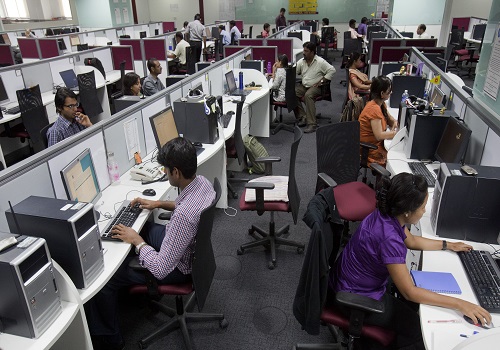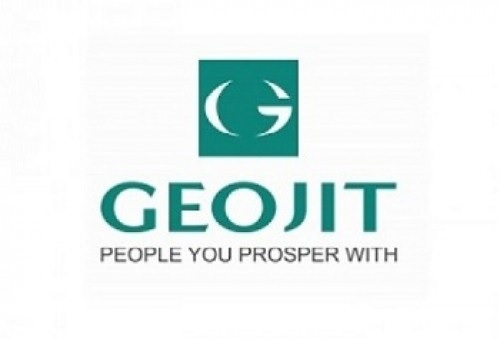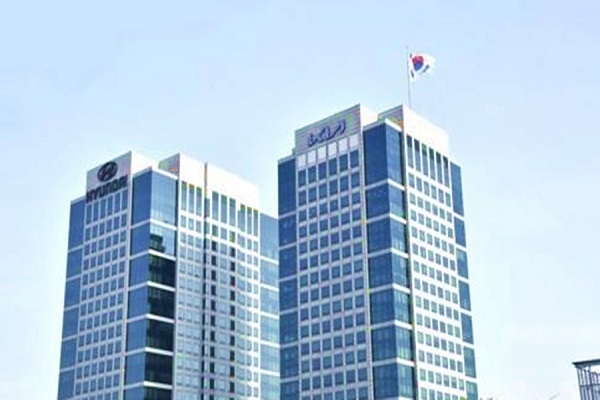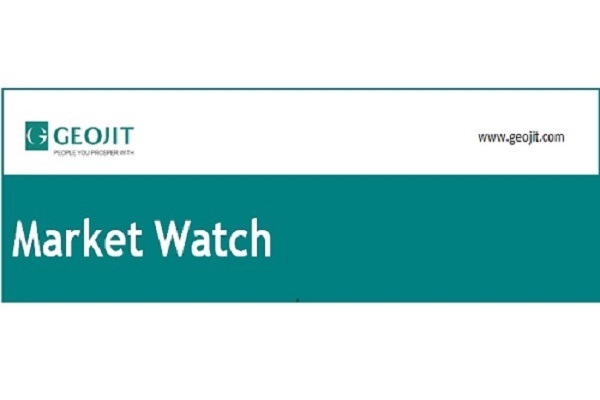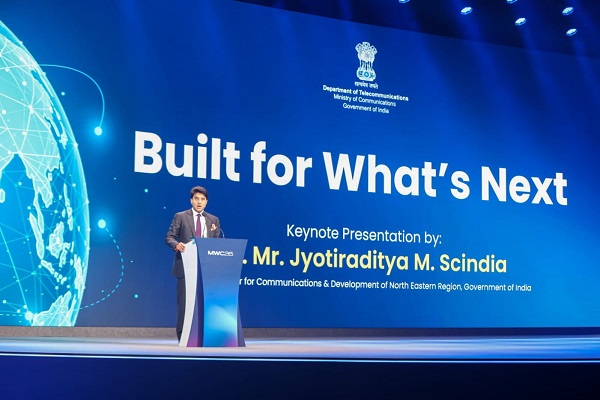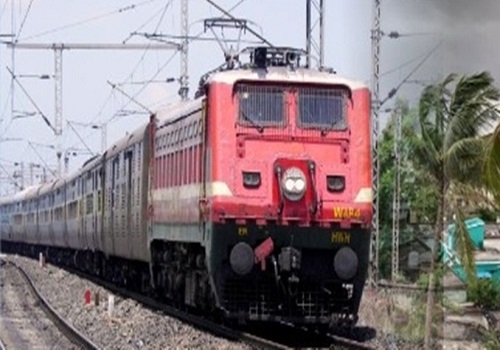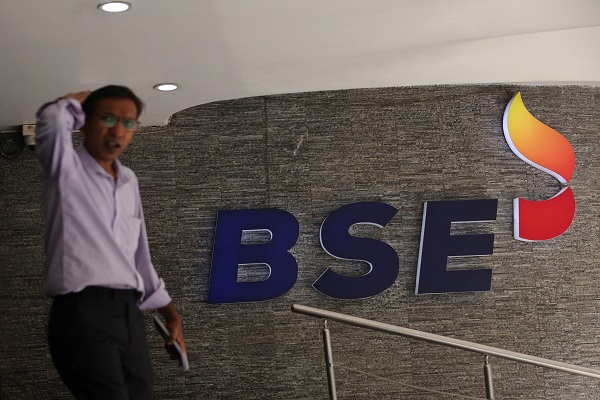Brigade Hotel Ventures coming with IPO to raise upto Rs 805 crore

Brigade Hotel Ventures
* Brigade Hotel Ventures is coming out with a 100% book building; initial public offering (IPO) of 8,93,97,399 shares of Rs 10 each in a price band Rs 85-90 per equity share.
* Not more than 75% of the issue will be allocated to Qualified Institutional Buyers (QIBs), including 5% to the mutual funds. Further, not less than 15% of the issue will be available for the non-institutional bidders and the remaining 10% for the retail investors.
* The issue will open for subscription on July 24, 2025 and will close on July 28, 2025.
* The shares will be listed on BSE as well as NSE.
* The face value of the share is Rs 10 and is priced 8.50 times of its face value on the lower side and 9.00 times on the higher side.
* Book running lead managers to the issue are ICICI Securities and JM Financial.
* Compliance Officer for the issue is Akanksha Bijawat.
Profile of the company
Brigade Hotel Ventures is an owner and developer of hotels in key cities in India primarily across South India. It is the second largest owner of chain-affiliated hotels and hotel rooms in South India (comprising the states of Kerala, Andhra Pradesh, Tamil Nadu, Karnataka, Telangana, and the Union territories Lakshadweep, Andaman and Nicobar Islands and Pondicherry) among major private hotel asset owners (i.e., investors owning at least 500 rooms pan India) as of March 31, 2025. Its Promoter, Brigade Enterprises Limited (BEL) entered into the hospitality business in 2004 with the development of its first hotel Grand Mercure Bangalore, which commenced operations in 2009. Currently, the company has a portfolio of nine operating hotels across Bengaluru (Karnataka), Chennai (Tamil Nadu), Kochi (Kerala), Mysuru (Karnataka) and the GIFT City (Gujarat) with 1,604 keys. Its hotels are operated by global marquee hospitality companies such as Marriott, Accor and InterContinental Hotels Group and are in the upper upscale, upscale, upper-midscale, and midscale segments.
Its hotels provide a comprehensive customer experience including fine dining and specialty restaurants, venues for meetings, incentives, conferences, and exhibitions (MICE), lounges, swimming pools, outdoor spaces, spas, and gymnasiums. It is a subsidiary of BEL which is a real estate developer in India. Its association with BEL gives it a competitive edge and allows it to leverage its brand reputation, relationships with corporate clients and expertise in developing real estate properties. It benefits from BEL’s understanding of market trends and strategic location opportunities, enabling it to develop hotels in prominent areas with high growth potential. It also takes advantage of BEL’s involvement in mixed-use developments to develop hotels as part of real estate projects to offer integrated experiences to its customers.
Its hotels are typically located in positive demand locations, driven by factors such as population density, premium neighbourhoods, commercial centres and IT hubs. It focuses on identifying specific locations for its hotels within cities that are conveniently located near airports, business districts, commercial centres and retail hubs with a high footfall. For example, its hotel Grand Mercure Bangalore is located in the heart of Bengaluru’s Koramangala region, providing accessibility to key business hubs, prominent tech parks and a variety of dining and entertainment options while its hotel Grand Mercure Mysore is located in close proximity to iconic landmarks such as Mysore Palace, allowing customers to experience cultural heritage. In addition, hotel Grand Mercure Ahmedabad GIFT City is located within GIFT City (Gujarat) which is one of the India’s pioneering global financial hub.
Proceed is being used for:
* Repayment/ prepayment, in full or in part, of certain outstanding borrowings availed by: the company; and Material Subsidiary, namely, SRP Prosperita Hotel Ventures
* Payment of consideration for buying of Undivided Share of Land from its Promoter, BEL
* Pursuing inorganic growth through unidentified acquisitions and other strategic initiatives and general corporate purposes
Industry Overview
India has 204k chain affiliated hotel rooms, across segments, as at March 31, 2025. Supply at independent hotels is widely fragmented and substantially of midscale or lower positioning. Supply composition has evolved over the years creating greater depth and balance across segments, with 33.9% supply share for the Luxury-Upper Upscale segments, 38.4% for the Upscale - Upper Midscale segments and 27.7% for the M-E segments as at March 31, 2025. Further, geographic spread of hotels continues to widen. Supply share at Key Markets (Mumbai, Delhi-NCR, Bengaluru, Chennai, Hyderabad, Kolkata, Pune, Ahmedabad, Goa and Jaipur) declined from 69% at Fiscal 2015 to 57% at Fiscal 2025, and is estimated at 49% by Fiscal 2030; 66% of supply expected between Fiscal 2026 and Fiscal 2030 is outside the Key Markets. Share (measured by rooms) of international chains has risen from 21% in Fiscal 2001 to 45% for the last ten years; this is expected to be at 47% at end Fiscal 2030.
Demand for chain affiliated hotels has increased from 61k rooms per day for Fiscal 2015 to 116k rooms per day for Fiscal 2024 to 127k rooms per day at end of Fiscal 2025. Demand grew at 9.9% CAGR2 between Fiscal 2001 and Fiscal 2025, including at 7.6% CAGR between Fiscal 2015 to Fiscal 2025. Demand growth in the last 3 years, was at 5.6% CAGR between Fiscal 2023 and Fiscal 2025. Domestic travel visits aggregated 2.3 billion for calendar year 2019. Post Covid recovery was sharp with 1.73 billion visits for calendar year 2022 and 2.51 billion visits for calendar year 2023.
Select Markets will see limited new supply of only 13.7k rooms being added through March 30 (12.3% share of new supply between April 1, 2025 and March 31, 2030). Consequently, the overall supply share of Select Markets will decline from its current level of 22.9% to 19.2%. The new supply is expected to facilitate additional demand creation / absorption so that the overall impact on occupancies in Select Markets will likely be positive, or remain broadly neutral. 34% of supply creation through Fiscal 2030 will occur in Key Markets (including relevant Select Markets) and 66% will occur outside the Key Markets. The wider spread of new supply will likely satisfy latent demand and generate new demand.
Pros and strengths
Strategically located award winning hotels: The company is an owner and developer of hotels in key cities in India primarily across South India. It has a portfolio of nine operating hotels across Bengaluru (Karnataka), Chennai (Tamil Nadu), Kochi (Kerala), Mysuru (Karnataka) and the GIFT City (Gujarat) with 1,604 keys. Its hotels are typically located in positive demand locations, driven by factors such as population density, premium neighbourhoods, commercial centres, IT hubs or strong leisure potential. Its hotels have been consistently recognized for their quality and have received several awards. For example, its hotel Sheraton Grand Bangalore at Brigade Gateway was awarded ‘City Hotel of the Year 2022-2023’ at the Luxury Travel Guide Globe Awards and ‘Leading Luxury hotel’ by South Asian Travel Awards in 2024, its hotel Holiday Inn Chennai OMR IT Expressway was awarded ‘Best Five Star Hotel of the year for 2019’ by Tamil Nadu Tourism and Four Points by Sheraton Kochi Infopark was awarded the ‘Vajra Award of The Year’ in 2023 by the Department of Labour and Skills, Government of Kerala.
Focus on asset management resulting in operating efficiencies: The company has a business model where it either owns or leases hotel assets and engage global hospitality companies to operate, maintain and market its hotel assets under management contracts. This approach helps it to attract a global clientele, efficiently manage day-to-day operations, and attract top talent. Its engagement with global hospitality companies also provides it with access to their management expertise, industry best practices, marketing strategies, operational know-how, and human resources. It closely monitors and exercises regular oversight to optimize performance of its hotels. It engages with each hotel’s operator management team to discuss and agree upon budgeting, cost management, and operational and financial targets.
Strong parentage of Brigade Group: BEL has a deep understanding of market trends and location opportunities which enable it to locate strategic land parcels for its hotels. Further, BEL’s involvement in developing large mixed use developmental projects provides it with an opportunity to develop hotels as part of these projects, which allows it to provide an integrated experience to its customers by combining hospitality with other amenities and services. Further, Brigade Hotel Ventures leverages BEL’s expertise and knowledge to develop hotels with cost-efficiency and high quality in shortened timelines. In addition, Brigade Hotel Ventures benefits from the strong reputation of BEL, its network and relationships to secure corporate clientele for hospitality tie-ups and share services such as human resource, accounting and legal to drive operational efficiencies.
Well positioned to leverage industry tailwinds: The demand for chain-affiliated hotels has increased from 61,000 rooms per day in Fiscal 2015 to 116,000 rooms per day in Fiscal 2024 and to 127,000 rooms per day at the end of March 2025. Services sector is among the fastest growing in the Indian economy. India is a software hub for exports. Karnataka, Tamil Nadu, Kerala and Telangana contributed about 65% of India’s IT and ITeS exports for Fiscal 2024, with operations mainly driven from Bengaluru, Chennai, Kochi and Hyderabad. As an owner and developer of branded hotels in key cities primarily in South India, the company is well positioned to benefit from its scale, built-in operating efficiencies and ability to expand its operations in key markets.
Risks and concerns
Significant revenue comes from four hotels located in Bengaluru: A significant portion of the company’s revenues is derived from its four hotels located in Bengaluru (Karnataka) (63.21% of revenue from operations in Fiscal 2025 was from its hotels located in Bengaluru (Karnataka)). Further, it derives a significant portion of its revenues from its hotels Sheraton Grand Bangalore at Brigade Gateway, Holiday Inn Chennai OMR IT Expressway and Holiday Inn Bengaluru Racecourse (62.02% of the revenue from operations was from these hotels in Fiscal 2025). Any adverse developments affecting such hotels or locations could have an adverse effect on its business, financial condition, cash flows and results of operations.
Significant revenue comes from food and beverages: The company’s operations depend on the quality of food and beverages (F&B) served at its hotels and it focuses on hygiene to ensure safety of its customers. The company has garnered 32.75%, 31.68% and 31.30% of its total revenue from food and beverages segment in FY25, FY24 and FY23 respectively. The company’s F&B revenue is dependent on the occupancy rates at its hotels. The guests at its hotels often visit its restaurants and bars at its hotels, and any decrease in the number of guests at its rooms, may lead to a decrease in the number of customers at its restaurants and bars. Further, it maintains an inventory of dry groceries and liquor, which are subject to expiry and may also be subject to contamination or deterioration. Any contamination or deterioration of quality could result in customer dissatisfaction and/or criminal or civil liabilities and restrict its ability to provide services which, in turn, could have an adverse effect on its business, financial condition, results of operations, cash flows and prospects.
Business is subject to seasonal and cyclical variations: The hotel and hospitality industry in India is subject to seasonal variations. The periods during which its hotels experience higher revenues vary from property to property, depending principally upon location and the guests served. Its revenues are generally higher during the second half of each Fiscal as compared to first half of the Fiscal. Seasonality affects leisure travel and the meetings, incentives, conferences and exhibitions (MICE) bookings, including weddings. The winter months are preferred for travel into India for leisure, MICE events, leadership level business travel and high-end destination weddings. Further, the months from October through March of any Fiscal are materially busier than the summer and monsoon seasons. This seasonality can be expected to cause fluctuations in its revenue, profit margins and net earnings.
Intense competition: The hotel industry in India is intensely competitive and it competes with large multinational and Indian companies, in each of the regions that it operates. Its nine operating hotels are located in competitive regions, including locations such as Bengaluru (Karnataka), Chennai (Tamil Nadu), Mysore (Karnataka), Kochi (Kerala) and GIFT City (Gujarat). Further, demographic, political, geographic, geological or other changes in one or more of its markets could impact the convenience or desirability of the sites where its operating hotels are located at, which could adversely affect their operations.
Outlook
Brigade Hotel Ventures is the owner and developer of hotels in key cities in India, primarily across South India. The company is a wholly-owned subsidiary of BEL, which is one of the leading Indian real estate developers in India. The hotels provide a comprehensive customer experience, including fine dining and specialty restaurants, venues for meetings, incentives, conferences, and exhibitions (“MICE”), lounges, swimming pools, outdoor spaces, spas, and gymnasiums. On the concern side, a significant portion of its revenues is derived from its four hotels located in Bengaluru (Karnataka). Any adverse developments affecting these hotels or locations could have an adverse effect on its business, financial condition, cash flows and results of operations. Moreover, the company’s business is subject to seasonal and cyclical variations that could result in fluctuations in its results of operations, financial condition and cash flows.
The issue has been offering 8,93,97,399 shares in a price band of Rs 85-90 per equity share. The aggregate size of the offer is around Rs 759.88 crore to Rs 804.58 crore based on lower and upper price band respectively. Minimum application is to be made for 166 shares and in multiples thereon, thereafter. On performance front, the company’s revenue from operations increased by 16.57% from Rs 4,017.00 million in Fiscal 2024 to Rs 4,682.50 million in Fiscal 2025, primarily due to an increase in the revenue from hospitality services. Moreover, the company’s restated profit/(loss) for the year was Rs 236.60 million in Fiscal 2025 compared to Rs 311.40 million in Fiscal 2024.
The company intends to expand its operations and market presence by developing new hotels at select locations in India and are focused on selecting regions with high growth potential and demand. It has recently opened another hotel located in Mysuru, Karnataka under the brand ‘IBIS Styles Mysuru’ with 130 keys. Going forward, the company plans to develop a wellness resort on 14.70 acres in Vaikom, Kerala of which it owns 7.08 acres and has signed an memorandum of agreement dated October 21, 2024 with Brigade Hospitality Services Limited to purchase the balance 7.62 acres. The company has also entered into a definitive agreement with Marriott to develop this resort under ‘The Ritz-Carlton’ brand. It intends to complete the construction of a luxury beach resort in Chennai (Tamil Nadu) and two upper midscale hotels in Bengaluru (Karnataka) by Fiscal 2028 and the remaining two hotels by Fiscal 2029. With these five additional hotels, it estimates to have an inventory of about 2,560 keys by Fiscal 2029.
